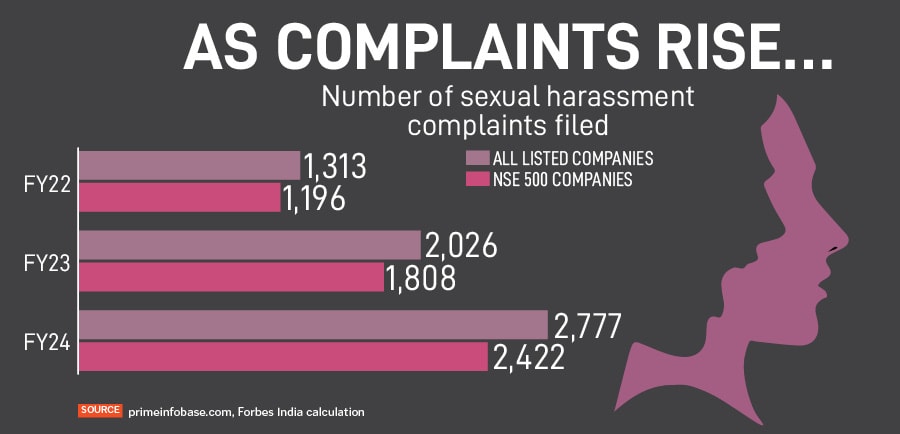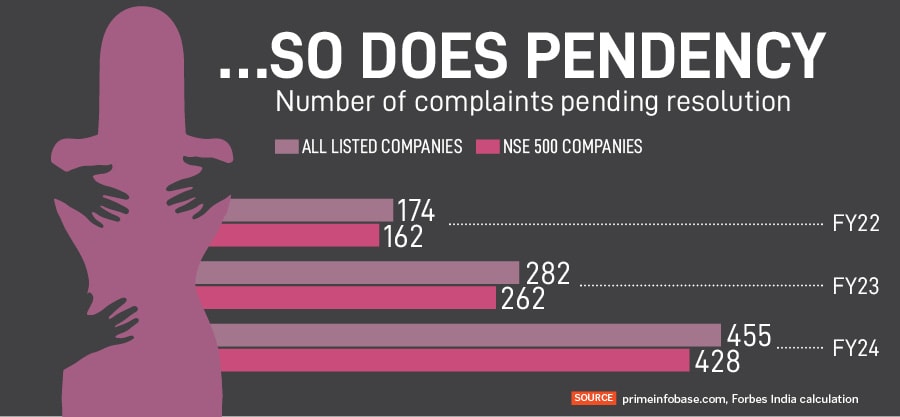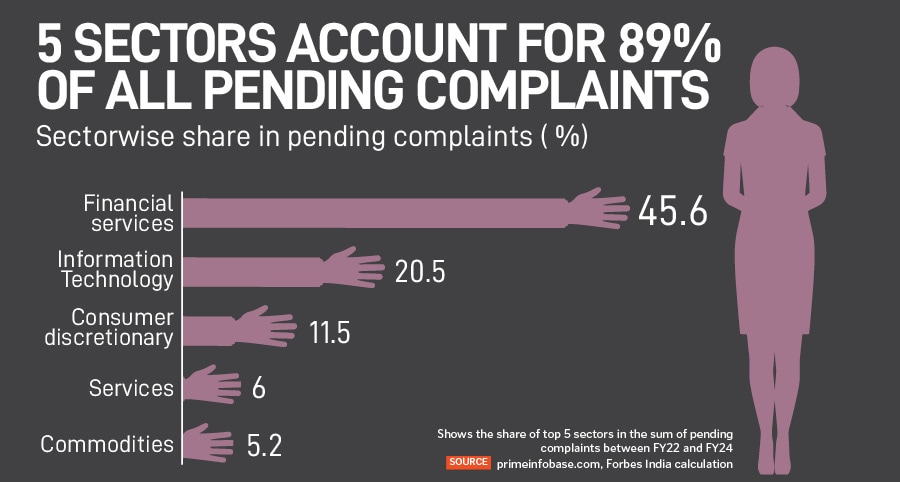Rising backlog of sexual harassment complaints in India Inc
There is a sharp increase in both new complaints and pending cases in FY24 compared to FY22


While more employees are stepping forward to report sexual harassment, resolutions of these complaints are not keeping pace, leading to a significant increase in unresolved cases, according to a Forbes India analysis of data from primeinfobase.
There is a sharp rise in both new complaints and pending cases in FY24 compared to FY22. Sexual harassment complaints filed across all listed companies in India increased to 2,777 in FY24, up from 2,026 in FY23 and 1,313 in FY22. The increase suggests growing awareness and employee confidence in the redressal process mandated by the Sexual Harassment of Women at Workplace (Prevention, Prohibition and Redressal) Act, 2013, commonly known as the POSH Act.
However, there is also a mounting backlog of unresolved cases. The number of pending complaints at all listed companies nearly tripled over the three-year period, jumping from 174 in FY22 to 455 in FY24. For the NSE 500 companies, the pendency rose from 162 to 428 in the same period.

Pranav Haldea, managing director, Prime Database Group, cautions that while the figure may not be fully reflective since Business Responsibility and Sustainability Reporting (BRSR) was voluntary for FY22, it broadly signifies a positive trend. “This [rising pendency of sexual harassment cases] is reflective of a greater number of complaints now being filed, with more employees finding their voice, which was not the case earlier. The two figures have a direct correlation,” he says.

The data reveals that just five industries account for a staggering 89 percent of all unresolved cases between FY22 and FY24. The financial services sector leads the list with nearly 46 percent of the pendency, followed by information technology (IT) at 20.5 percent. The remaining significant contributors are companies from the consumer discretionary, services, and commodities sectors. About 36 percent of all complaints filed are from the financial services sector and another 21 percent from the IT sector.
While the rise in reported complaints is widely seen as a positive indicator, the increase in pendency highlights the need for companies to encourage reporting and also to invest in robust, well-resourced, and transparent redressal mechanisms. Haldea explains that while, legally, all companies with more than 10 employees must constitute an Internal Complaints Committee to investigate all complaints, some employers are also going “above and beyond what is legally required”. “At least the large, listed companies in India are increasingly putting in place stronger measures to ensure swift, fair and effective redressal of sexual harassment complaints in the workplace,” he says.
As the volume of complaints continues to grow, corporate boards and management teams must make a concerted effort to address the root causes of the pendency to protect their employees.
First Published: Sep 17, 2025, 16:31
Subscribe Now